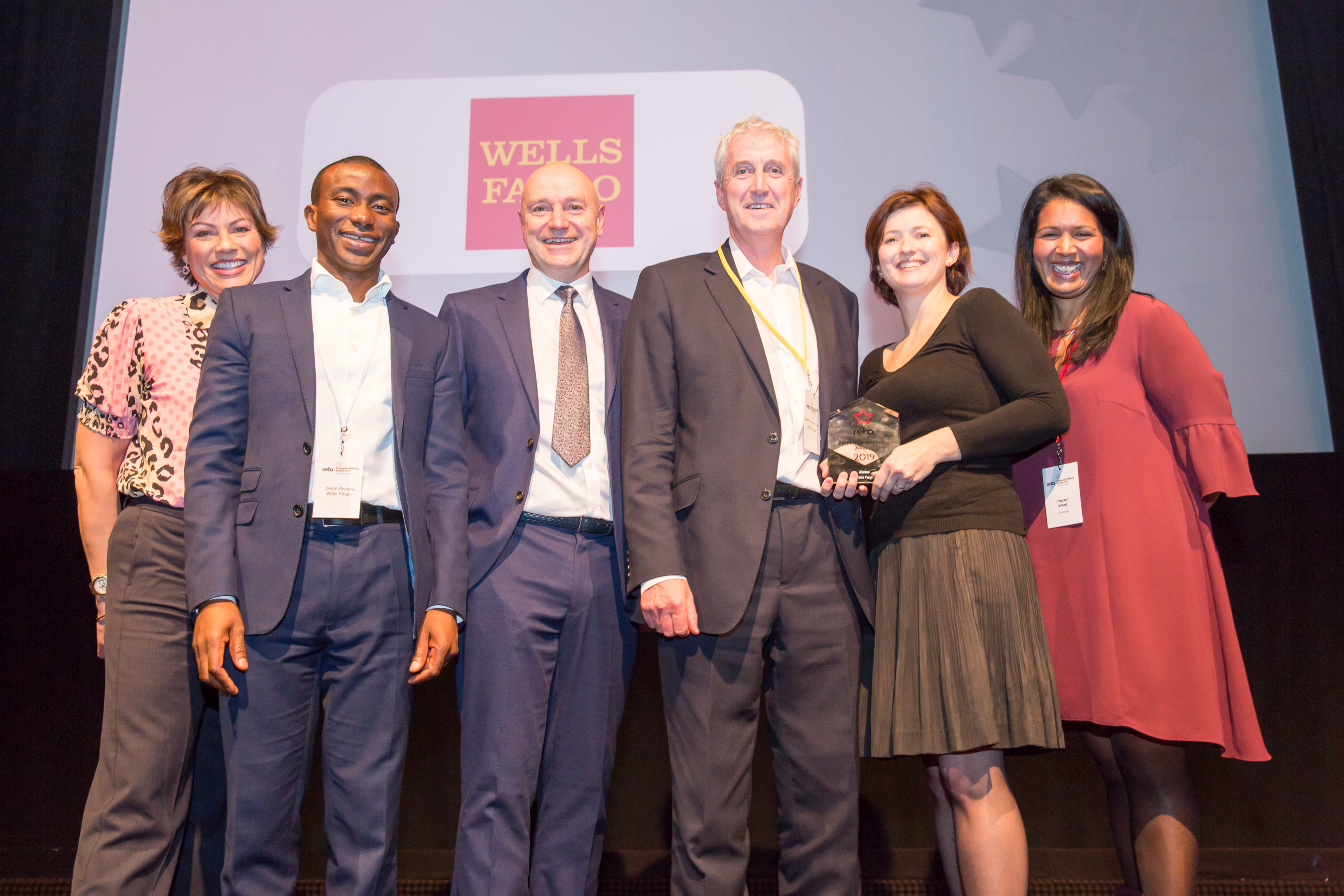REBA Award winner - Wells Fargo - Global
Reba's Employee Wellbeing awards, held on 7 February, celebrated the very best in workplace wellbeing. The winner of the Global category was Wells Fargo - and here's why they won.

Size: 1,050 (UK); 270,000 globally
Sector: Financial Services
Initiative: Global wellness strategy
WHAT IT DID
When you have more than 20,000 core team members spread across 35 countries, reinventing the wheel every time you have a new employee initiative isn’t always desirable. So when the business decided to initiate a new wellbeing programme to support one of its core values – ‘people as a competitive advantage’ – the ambitious plan from the outset was to try and take it global.
The programme – which reflected recent growth in headcount, and which was designed to leverage data and other insights to understand what its employees’ key health risks were – started in 2016, with a mission to roll it out to its top five markets of UK, Canada, Hong Kong, India and the Philippines.
This award celebrates the significant successes it made in achieving these lofty aims, by not only using data to identify the top three-five health risks per country, but then creating supplementary programmes to address them. Some of its most stunning successes were in mobilising participation of team members (TMs). For instance, in India it has achieved 7,200 TMs attending on-site health screenings – a number equivalent to 60 per cent of its headcount there; in the Philippines 93 per cent of TMs attended their annual physical examination; while financial health seminars were attended by 20 per cent of the UK headcount.
Because the focus of the programme was so heavily reliant on using health data to drive interventions, significant local effort was placed on getting facts and figures that would really mean something. For instance, in its Hong Kong office, strict attention to detail measuring 450 team members during an on-site health day saw it determine that 46 per cent of members were overweight; 37 per cent were actually obese, 22 per cent had high blood pressure; and 49 per cent were considered to be ‘at risk’ due to systolic hypertension. The data collected across all locations was collated and analysed by a third-party consultancy, which then crated health dashboards and models to assess each country’s estimated cost of ill health and its wellbeing risks. These in-turn saw bespoke wellbeing frameworks created. Regional teams then organised country workshops to gather feedback from health champions about the interventions so that best practice could be shared around what was working well.
WHY IT WON
The vision at Fargo Wells is to ‘design and deliver programmes and services that will empower team members to invest in their overall wellbeing’, and judges said evidence they did this was in abundance.
Today, teams across any of the five countries can access detailed documents that explain all of the programmes currently operating. Moreover, the data collected has been so strong, it’s challenged traditional assumptions that might exist in wellbeing – for instance that musculoskeletal issues are a ‘western problem’ and that any interventions would not be well subscribed. Not only were judges impressed by this, they noted its confidence to pilot programmes first, then measure, before rolling out more widely. This means that for 2019, it already knows what it intends to do – which is to provide on-site access to clinicians in India.
Meanwhile, a new rooftop garden is planned for London, which will give members the opportunity to do gardening and outdoor exercise. “This was focused on specific countries where they identified and managed the national challenges,” said one judge, adding: “It was a data-driven strategy but the employee voice is still clear.” Fargo Wells says it’s already noticed people cascading health and wellbeing messages down, to their own immediate colleagues, and across to other team members. In particular, its ‘I see you’ initiative is really spreading. This encourages people to notice and reach out to support colleagues facing emotional challenges.
Success here is sure-fire indication this programme is hitting all the right notes.
